- Home
- Robert B. Parker
Looking for Rachel Wallace s-6 Page 6
Looking for Rachel Wallace s-6 Read online
Page 6
The guy with the earphones crouching beneath the camera said, “Good, Shirl.” Shirl took another cigarette from a box on the table behind Rachel’s book and lit up. She was able to suck in almost half of it before the guy under the camera said, “Ten seconds.” She snuffed this one out, leaned forward slightly, and when the picture came on the monitor, it caught her profile looking seriously at Rachel.
“Rachel,” she said, “do you think lesbians ought to be allowed to teach at a girls’ school?”
“Quite the largest percentage,” Rachel said, “of child molestations are committed by heterosexual men. As I pointed out in my book, the incidence of child molestation by lesbians is so small as to be statistically meaningless.”
“But what kind of role model would a lesbian provide?”
“Whatever kind she was. We don’t ask other teachers about their sexual habits. We don’t prevent so-called frigid women from teaching children, or impotent men. Children do not, it seems to me, have much chance in public school to emulate the sexual habits of their teachers. And if the teacher’s sexual preference is so persuasive to his or her students, why aren’t gays made straight by exposure to heterosexual teachers?”
“But might not the gay teacher subtly persuade his or her students toward a homosexual preference?”
Rachel said, “I just answered that, Shirley.”
Shirley smiled brilliantly. “In your book you allege frequent violations of civil rights in employment both by the government and the private sector. Many of the offenders are here in Massachusetts. Would you care to name some of them?”
Rachel was beginning to look annoyed. “I named all of them in my book,” she said.
“But,” Shirley said, “not all of our viewers have read it.”
“Have you?” Rachel said.
“I haven’t finished it yet,” Shirley said. “I’m sorry to say.” The guy crouching below the camera lens made a gesture with his hand, and Shirley said, “We’ll be right back with more interesting revelations from Rachel Wallace after this message.”
I whispered to Linda Smith, who stood in neat tweeds beside me, “Shirley doesn’t listen to the answers.”
“A lot of them don’t,” Linda said. “They’re busy looking ahead to the next question.”
“And she hasn’t read the book.”
Linda smiled and shook her head. “Almost none of them ever do. You can’t blame them. Sometimes you get several authors a week plus all the other stuff.”
“The pressure must be fearful,” I said. “To spend your working life never knowing what you’re talking about.”
“Lots of people do that,” Linda said. “I only hope Rachel doesn’t let her annoyance show. She’s a good interview, but she gets mad too easy.”
“That’s because if she had been doing the interview, she’d have read the book first.”
“Maybe,” Linda said, “but Shirley North has a lot of fans in the metropolitan area, and she can sell us some books. The bridge club types love her.”
A commercial for pantyhose concluded with a model holding out the crotch to show the ventilated panel, then Shirley came back on.
“In your book, Rachel, you characterize lesbianism as an alternative way of loving. Should everyone try it?”
“Everyone should do what she wants to do,” Rachel said. “Obviously people to whom the idea is not attractive should stay straight. My argument is, and has been, that those who do find that alternative desirable should not be victimized for that preference. It does no one any harm at all.”
“Is it against God’s law?”
“It would be arrogant of me to tell you God’s law. I’ll leave that to the people who think they have God’s ear. All I can say is that I’ve had no sign that He disapproves.”
“How about the argument that it is unnatural?”
“Same answer. That really implies a law of nature that exists immutably. I’m not in a position to know about that. Sartre said that perhaps existence precedes essence, and maybe we are in the process of making the laws of nature as we live.”
“Yes, certainly. Do you advocate lesbian marriage?”
“Shirley,” Rachel said. “I have documented corruption on several levels of local and state government, in several of the major corporations in the country, and you’ve asked me only about titillating things. In essence you’ve asked only about sex. That seems unbalanced to me.”
Shirley’s smile glowed. Her splendiferous eyelashes fluttered. “Isn’t that an interesting thought, Rachel? I wish we could spend more time, but I know you have to rush.” She picked up Tyranny. “Get Rachel’s book, Tyranny, published by Hamilton Black. You’ll love it, as I did. Thanks a million, Rachel. Come back again.”
Rachel muttered, “Thank you.”
Shirley said, “Now, this message.”
The guy squatting under the camera stood up and said, “Okay, next segment. Thanks a lot Mrs. Wallace. Shirley, you’re on the den set.” A technician took off Rachel’s lapel mike, and she got up and walked away. Shirley didn’t say goodbye. She was getting as much mentholated smoke into her as she could before the deodorant commercial ended.
Linda Smith said, “Oh, Rachel, you were dynamite.”
Rachel looked at me. I shrugged. Rachel said, “What’s that mean?”
I said, “It means you did your best in a difficult situation. You can’t look good being interviewed by Shirley North.”
Rachel nodded. Linda said, “Oh, no, I thought you were super.”
Rachel said nothing as we walked out of the studio and down the long corridor past the news set, empty now and shabby, then along the corridor where people sat in small offices and typed, and out into the lobby and reception area. On the big monitor opposite the reception desk Shirley was leaning toward the man who raised quail.
I frowned the way Shirley did and said in a high voice, “Tell me, do quails like to do it with anything but other quails?”
Rachel gave a snort. Linda smiled. Outside we parted—Rachel and I in my car, Linda in hers.
We wheeled along Soldiers’ Field Road with the Charles, quite small and winding this far up, on our left. I looked at Rachel. She was crying. Tears ran in silence down her cheeks. Her hands were folded in her lap. Her shoulders were a little hunched, and her body shook slightly. I looked back at the road. I couldn’t think of anything to say. She didn’t cry any harder and she didn’t stop. The only sound was the unsteady inhaling and exhaling as she cried. We went past Harvard Stadium.
I said, “Feel like a freak?”
She nodded.
“Don’t let them do that to you,” I said.
“A freak,” she said. Her voice was a little thick and a little unsteady, but if you didn’t see the tears, you wouldn’t be sure she was crying. “Or a monster. That’s how everyone seems to see us. Do you seduce little girls? Do you carry them off for strange lesbian rites? Do you use a dildo? God. God damn. Bastards.” Her shoulders began to shake harder.
I put my right hand out toward her with the palm up. We passed the business school that way—me with my hand out, her with her body shaking. Then she put her left hand in my right. I held it hard.
“Don’t let them do that to you,” I said.
She squeezed back at me and we drove the rest of the way along the Charles like that—our hands quite rigidly clamped together, her body slowly quieting down. When I got to the Arlington Street exit, she let go of my hand and opened her purse. By the time we stopped in front of the Ritz, she had her face dry and a little make-up on and herself back in place.
The doorman looked like I’d made a mess on his foot when I got out and nodded toward the Chevy. But he took it from me and said nothing. A job is a job. We went up in the elevator and walked to her room without saying a word. She opened the door. I stepped in first; she followed.
“We have to go to First Mutual Insurance Company at one. I’m addressing a women’s group there. Could you pick me up about twelve thirty?”
Her voice was quite calm now.
“Sure,” I said.
“I’d like to rest for a while,” she said, “so please excuse me.”
“Sure,” I said. “I’ll be here at quarter to one.”
“Yes,” she said. “Thank you.”
“Lock the door behind me,” I said.
She nodded. I went out and waited until I heard the bolt click behind me. Then I went to the elevator and down.
12
“I’m meeting with a caucus of women employees at First Mutual Insurance,” Rachel said. “This is their lunch hour and they’ve asked me to eat with them. I know you have to be close by, but I would like it if you didn’t actually join us.” We were walking along Boylston Street.
“Okay,” I said. “As I recall from your book, First Mutual is one of the baddies.”
“I wouldn’t put it that way, but yes. They are discriminatory in their hiring and wage practices. There are almost no women in management. They have systematically refused to employ gay people and have fired any that they discovered in their employ.”
“Didn’t you turn up discriminatory practices in their sales policy?”
“Yes. They discourage sales to blacks.”
“What’s the company slogan?”
Rachel smiled. “We’re in the people business.”
We went into the lobby of First Mutual and took an elevator to the twentieth floor. The cafeteria was at one end of the corridor. A young woman in camel’s-hair slacks and vest topped with a dark-brown blazer was waiting outside. When she saw Rachel she came forward and said, “Rachel Wallace?” She wore small gold-rimmed glasses and no make-up. Her hair was brown and sensible.
Rachel put out her hand. “Yes,” she said. “Are you Dorothy Collela?”
“Yes, come on in. We’re all at a table in the corner.” She looked at me uncertainly.
“My name is Spenser,” I said. “I just hang around Ms. Wallace. Don’t think about me for a moment.”
“Will you be joining us?” Dorothy said.
Rachel said, “No. Mr. Spenser is just going to stay by if I need anything.”
Dorothy smiled a little blankly and led Rachel to a long table at one end of the cafeteria. There were eight other women gathered there. I leaned against the wall maybe twenty feet away where I could see Rachel and not hear them and not be in the flow of diners.
There was a good deal of chair-scraping and jostling at the table when Rachel sat down. There were introductions and people standing and sitting, and then all but two of the women got up and went to the food line to get lunch. The luncheon special was Scrambled Hamburg Oriental, and I decided to pass on lunch.
The cafeteria had a low ceiling with a lot of fluorescent panels in it. The walls were painted a brilliant yellow on three sides with a bank of windows looking out over Back Bay on the fourth side. The bright yellow paint was almost painful. Music filtered through the cafeteria noise. It sounded like Mantovani, but it always does.
Working with a writer, you get into the glamour scene. After we left here, we’d probably go down to Filene’s basement and autograph corsets. Maybe Norman would be there, and Truman and Gore. Rachel took her tray and sat down. She had eschewed the Oriental hamburg. On her tray was a sandwich and a cup of tea.
A girl not long out of the high-school corridors came past me wearing very expensive clothes, very snugly. She had on blue harlequin glasses with small jewels on them, and she smelled like a French sunset.
She smiled at me and said, “Well, foxy, what are you looking at?”
“A size-nine body in a size-seven dress,” I said.
“You should see it without the dress,” she said.
“I certainly should,” I said.
She smiled and joined two other kids her age at a table. They whispered together and looked at me and laughed. The best-dressed people in the world are the single kids that just started working.
Two men in business suits and one uniformed guard came into the cafeteria and walked over to Rachel’s table. I slid along behind and listened in. It looked like my business. It was.
“We invited her here,” Dorothy was saying.
One of the business suits said, “You’re not authorized to do that.” He looked like Clark Kent. Three-piece suit with a small gray herringbone in it. Glasses, square face. His hair was short, his face was clean shaved. His shoes were shined. His tie was knotted small but asserted by a simple pin. He was on the way up.
“Who are you?” Rachel said.
“Timmons,” he said. “Director of employee relations.” He spoke very fast. “This is Mr. Boucher, our security coordinator.” Nobody introduced the uniformed guard; he wasn’t on the way up. Boucher was sort of plumpish and had a thick mustache. The guard didn’t have a gun, but the loop of a leather strap stuck out of his right hip pocket.
“And why are you asking me to leave?” Rachel was saying.
“Because you are in violation of company policy.”
“How so?”
“No soliciting is allowed on the premises,” Timmons said. I wondered if he was nervous or if he always spoke that fast. I drifted around behind Rachel’s chair and folded my arms and looked at Timmons.
“And what exactly am I supposed to be soliciting?” Rachel said.
Timmons didn’t like me standing there, and he didn’t quite know what to do about it. He looked at me and looked away quickly and then he looked at Boucher and back at me and then at Rachel. He started to speak to Rachel and stopped and looked at me again.
“Who are you?” he said.
“I’m the tooth fairy,” I said.
“The what?”
“The tooth fairy,” I said. “I loosen teeth.”
Timmons’s mouth opened and shut. Boucher said, “We don’t need any smart answers, mister.”
I said, “You wouldn’t understand any.”
Rachel said, “Mr. Spenser is with me.”
“Well,” Boucher said, “you’ll both have to leave or we’ll have you removed.”
“How many security people you got?” I said to Boucher.
“That’s no concern of yours,” Boucher said. Very tough.
“Yeah, but it could be a concern of yours. It will take an awful lot of people like you to remove us.”
The uniformed guard looked uncomfortable. He probably knew his limitations, or maybe he just didn’t like the company he was keeping.
“Spenser,” Rachel said, “I don’t want any of that. We will resist, but we will resist passively.”
The dining room was very quiet except for the yellow walls. Timmons spoke again—probably encouraged by the mention of passive resistance.
“Will you leave quietly?” he said.
“No,” Rachel said, “I will not.”
“Then you leave us no choice,” Boucher said. He turned to the uniformed guard. “Spag,” he said, “take her out.”
“You can’t do that,” Dorothy said.
“You should wait and discuss this with your supervisor,” Timmons said, “because I certainly will.”
Spag stepped forward and said softly, “Come on, miss.”
Rachel didn’t move.
Boucher said, “Take her, Spag.”
Spag took her arm, gently. “Come on, miss, you gotta go,” he said. He kept a check on me with frequent side-shifting glances. He was probably fifty and no more than 170 pounds, some of it waistline. He had receding brown hair and tattoos on both forearms. He pulled lightly at Rachel’s arm. She went limp.
Boucher said, “God damn it, Spag, yank her out of that chair. She’s trespassing. You have the right.”
Spag let go of Rachel’s arm and straightened up. “No,” he said. “I guess not.”
Timmons said, “Jesus Christ.”
Boucher said to him, “All right, we’ll do it. Brett, you take one arm.” He stepped forward and took Rachel under the left arm. Timmons took her right arm, and they dragged her out of the chair. She went limp on them, and the
y weren’t ready for it. They couldn’t hold her dead weight, and she slipped to the floor, her legs spread, her skirt hitched halfway up her thigh. She pulled it down.
I said to Spag, “I am going to make a move here. Are you in or out?”
Spag looked at Rachel on the floor and at Timmons and Boucher. “Out,” he said. “I used to do honest work.”
Boucher was behind Rachel now and had both his arms under hers. I said to him, “Let her go.”
Rachel said, “Spenser, I told you we were going to be passive.”
Boucher said, “You stay out of this, or you’ll be in serious trouble.”
I said, “Let go of her, or I’ll hit you while you’re bent over.”
Timmons said, “Hey,” but it wasn’t loud.
Boucher let Rachel go and stood up. Everyone in the dining room was standing and watching. There was a lot on the line for Boucher. I felt sorry for him. Most of the onlookers were young women. I reached my hand down to Rachel. She took it and got up.
“God damn you,” she said. I turned toward her and Boucher took a jump at me. He wasn’t big, but he was slow. I dropped my shoulder and caught him in the chest. He grunted. I straightened up, and he staggered backwards and bumped into Timmons.
I said, “If you annoy me, I will knock you right over that serving counter.” I pointed my finger at him.
Rachel said, “You stupid bastard,” and slapped me across the face. Boucher made another jump. I hit him a stiff jab in the nose and then crossed with my right, and he went back into the serving line and knocked down maybe fifty plates off the counter and slid down to the floor. “Into is almost as good as over,” I said. Timmons was stuck. He had to do something. He took a swing at me; I pulled my head back, slapped his arm on past me with my right hand. It half turned him. I got his collar in my left hand and the seat of his pants in my right and ran him three steps over to the serving counter, braced my feet, arched my back a little, and heaved him up and over it. One of his arms went in the gravy. Mashed potatoes smeared his chest, and he went over the counter rolling and landed on his side on the floor behind it.

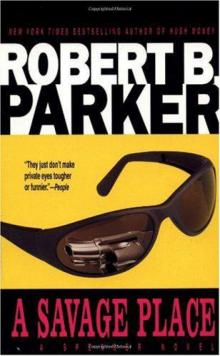 A Savage Place s-8
A Savage Place s-8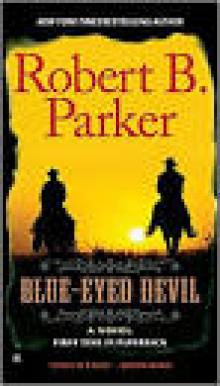 Appaloosa / Resolution / Brimstone / Blue-Eyed Devil
Appaloosa / Resolution / Brimstone / Blue-Eyed Devil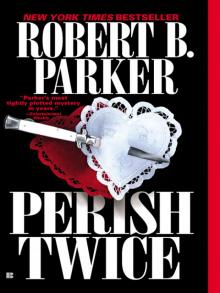 Perish Twice
Perish Twice Spare Change
Spare Change Family Honor
Family Honor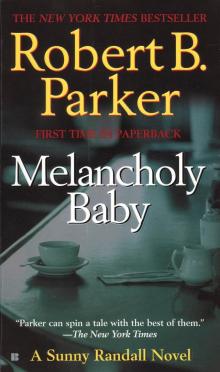 Melancholy Baby
Melancholy Baby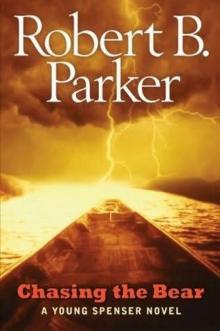 Chasing the Bear
Chasing the Bear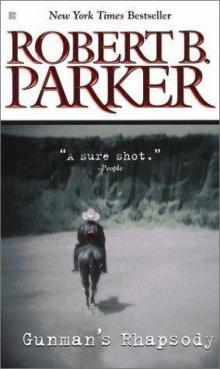 Gunman's Rhapsody
Gunman's Rhapsody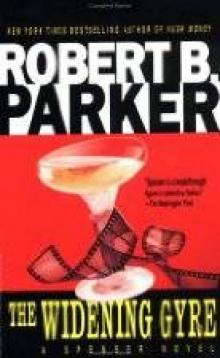 The Widening Gyre
The Widening Gyre Thin Air
Thin Air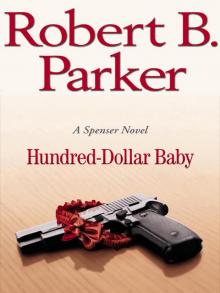 Hundred-Dollar Baby
Hundred-Dollar Baby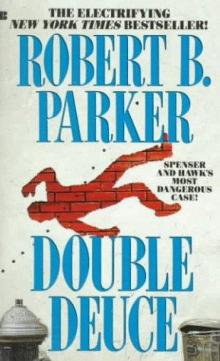 Double Deuce s-19
Double Deuce s-19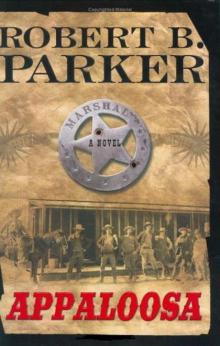 Appaloosa vcaeh-1
Appaloosa vcaeh-1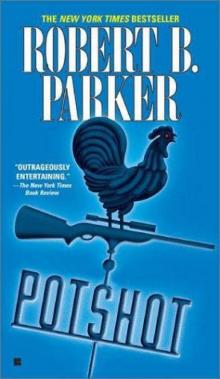 Potshot
Potshot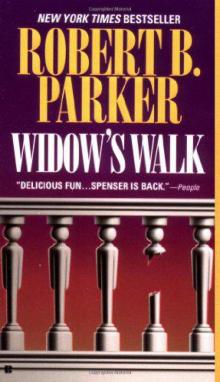 Widow’s Walk s-29
Widow’s Walk s-29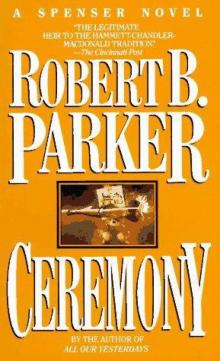 Ceremony s-9
Ceremony s-9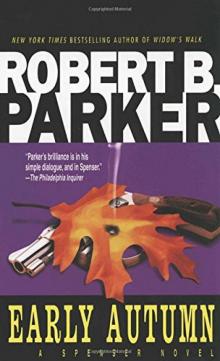 Early Autumn
Early Autumn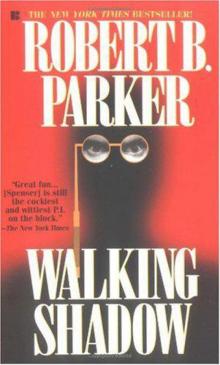 Walking Shadow s-21
Walking Shadow s-21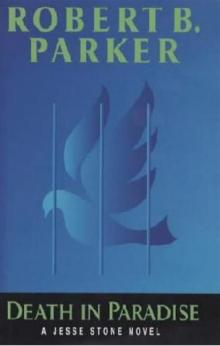 Death In Paradise js-3
Death In Paradise js-3 Shrink Rap
Shrink Rap Blue-Eyed Devil
Blue-Eyed Devil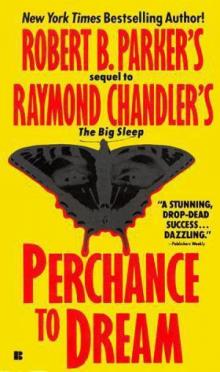 Perchance to Dream
Perchance to Dream Resolution vcaeh-2
Resolution vcaeh-2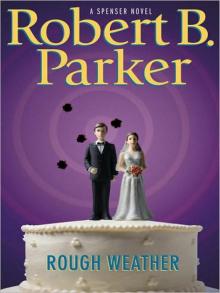 Rough Weather
Rough Weather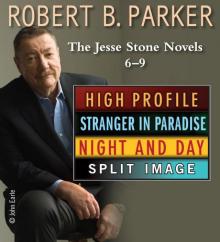 The Jesse Stone Novels 6-9
The Jesse Stone Novels 6-9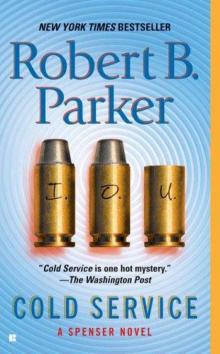 Cold Service s-32
Cold Service s-32 The Godwulf Manuscript
The Godwulf Manuscript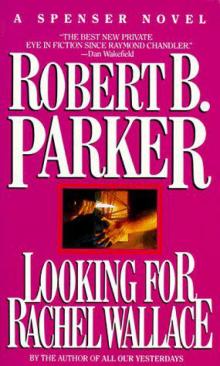 Looking for Rachel Wallace s-6
Looking for Rachel Wallace s-6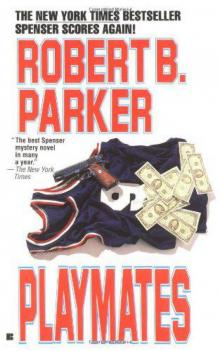 Playmates s-16
Playmates s-16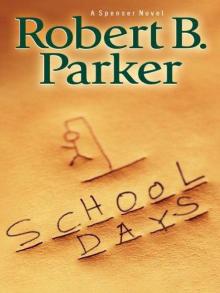 School Days s-33
School Days s-33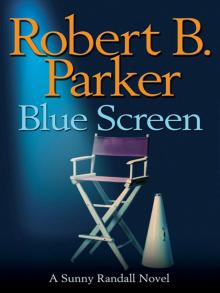 Blue Screen
Blue Screen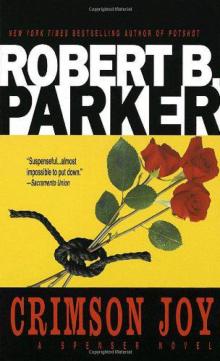 Crimson Joy
Crimson Joy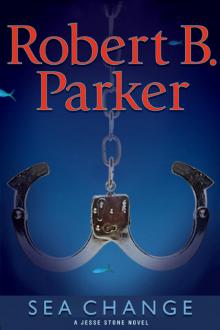 Sea Change js-5
Sea Change js-5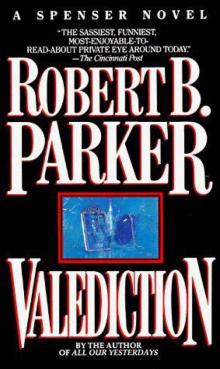 Valediction s-11
Valediction s-11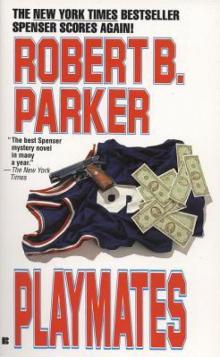 Playmates
Playmates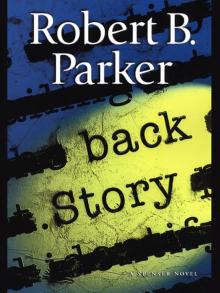 Back Story
Back Story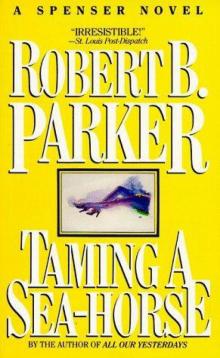 Taming a Sea Horse
Taming a Sea Horse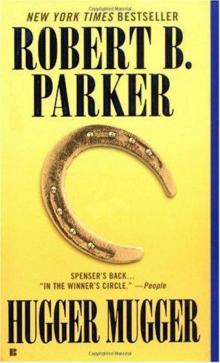 Hugger Mugger
Hugger Mugger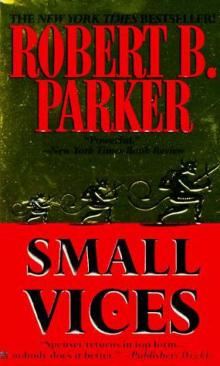 Small Vices s-24
Small Vices s-24 Silent Night: A Spenser Holiday Novel
Silent Night: A Spenser Holiday Novel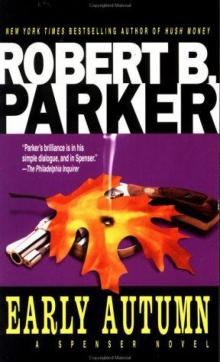 Early Autumn s-7
Early Autumn s-7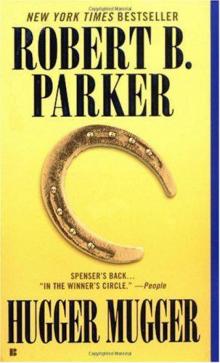 Hugger Mugger s-27
Hugger Mugger s-27 (5/10) Sea Change
(5/10) Sea Change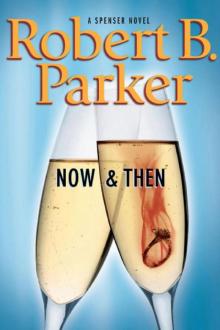 Now and Then
Now and Then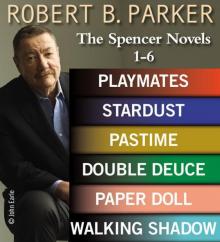 Robert B. Parker: The Spencer Novels 1?6
Robert B. Parker: The Spencer Novels 1?6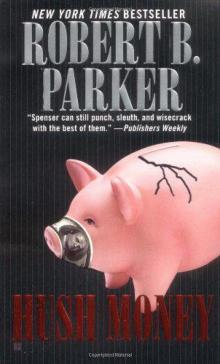 Hush Money s-26
Hush Money s-26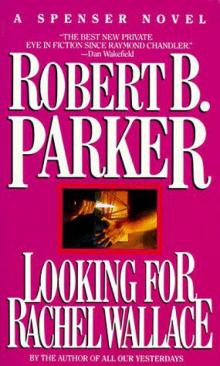 Looking for Rachel Wallace
Looking for Rachel Wallace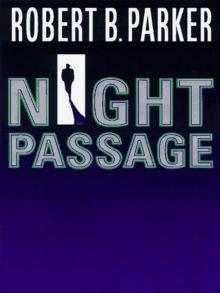 Night Passage
Night Passage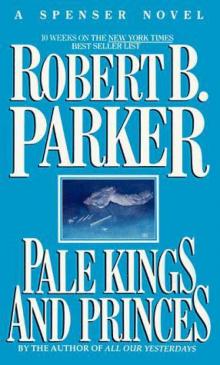 Pale Kings and Princes
Pale Kings and Princes All Our Yesterdays
All Our Yesterdays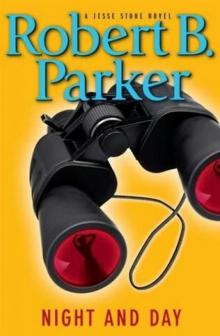 Night and Day js-8
Night and Day js-8 Stranger in Paradise js-7
Stranger in Paradise js-7 Double Play
Double Play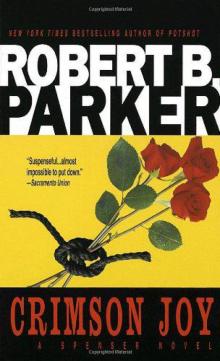 Crimson Joy s-15
Crimson Joy s-15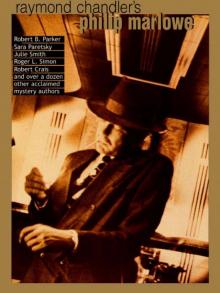 Raymond Chandler's Philip Marlowe
Raymond Chandler's Philip Marlowe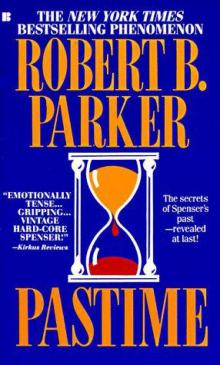 Pastime
Pastime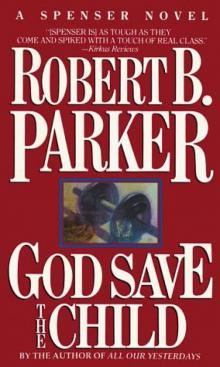 God Save the Child s-2
God Save the Child s-2 Bad Business
Bad Business Trouble in Paradise js-2
Trouble in Paradise js-2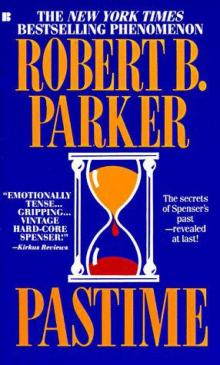 Pastime s-18
Pastime s-18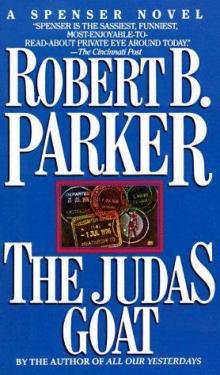 The Judas Goat s-5
The Judas Goat s-5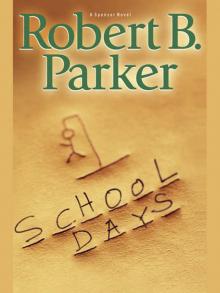 School Days
School Days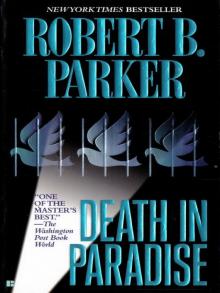 Death In Paradise
Death In Paradise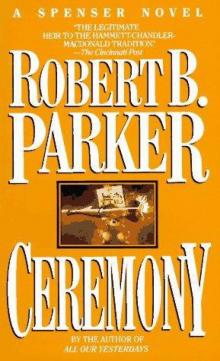 Ceremony
Ceremony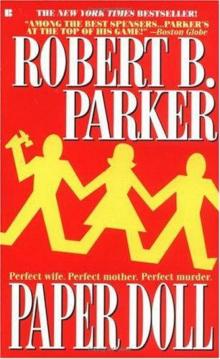 Paper Doll s-20
Paper Doll s-20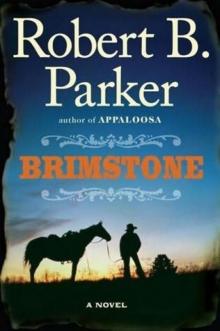 Brimstone vcaeh-3
Brimstone vcaeh-3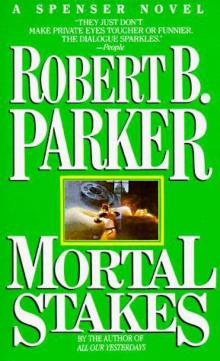 Mortal Stakes s-3
Mortal Stakes s-3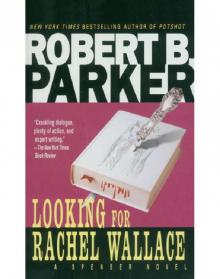 Spencer 06 - Looking for Rachel Wallace
Spencer 06 - Looking for Rachel Wallace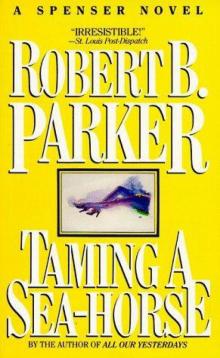 Taming a Sea Horse s-13
Taming a Sea Horse s-13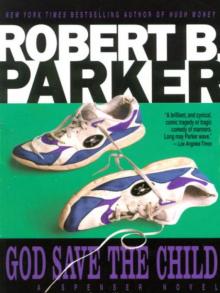 God Save the Child
God Save the Child Chance
Chance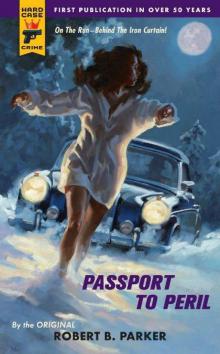 Passport To Peril hcc-57
Passport To Peril hcc-57 Promised Land
Promised Land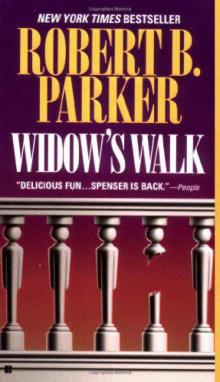 Widow’s Walk
Widow’s Walk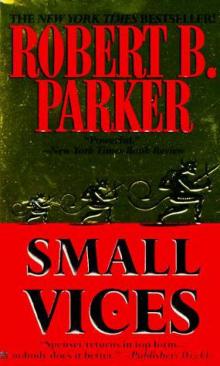 Small Vices
Small Vices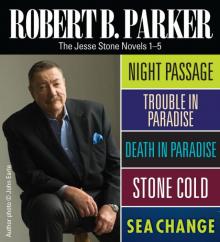 Robert B Parker: The Jesse Stone Novels 1-5
Robert B Parker: The Jesse Stone Novels 1-5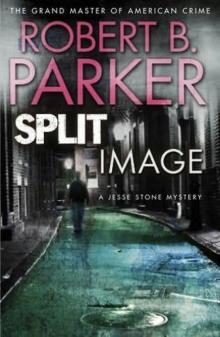 Split Image js-9
Split Image js-9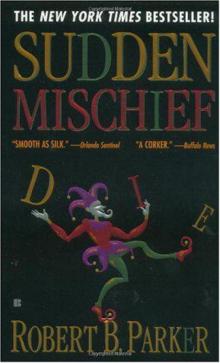 Sudden Mischief s-25
Sudden Mischief s-25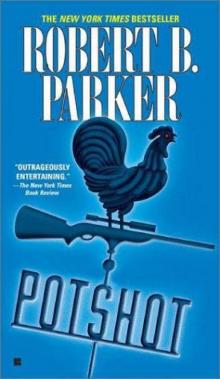 Potshot s-28
Potshot s-28 Split Image
Split Image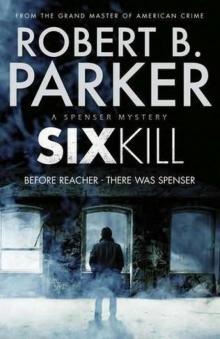 Sixkill s-40
Sixkill s-40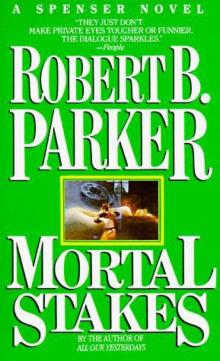 Mortal Stakes
Mortal Stakes Stardust
Stardust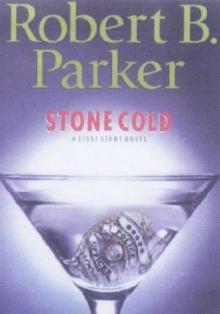 Stone Cold js-4
Stone Cold js-4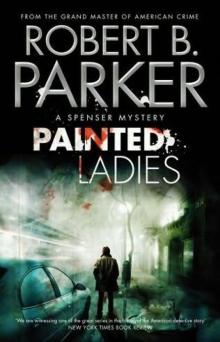 Painted Ladies s-39
Painted Ladies s-39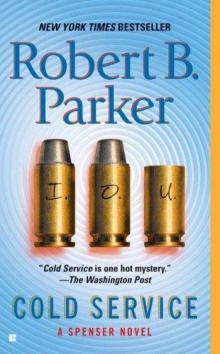 Cold Service
Cold Service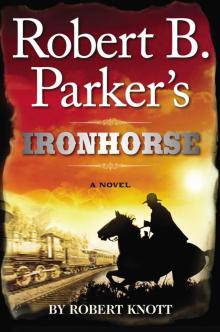 Ironhorse
Ironhorse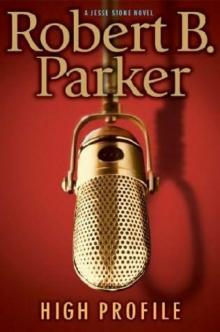 High Profile js-6
High Profile js-6 The Boxer and the Spy
The Boxer and the Spy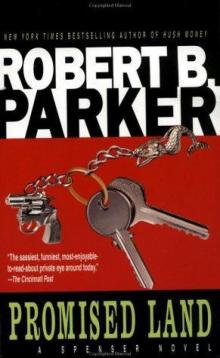 Promised Land s-4
Promised Land s-4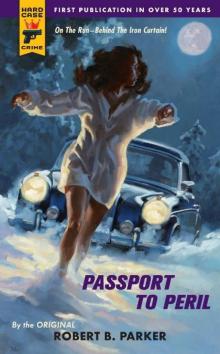 Passport to Peril (Hard Case Crime (Mass Market Paperback))
Passport to Peril (Hard Case Crime (Mass Market Paperback))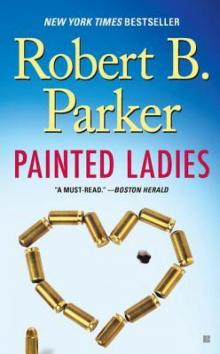 Painted Ladies
Painted Ladies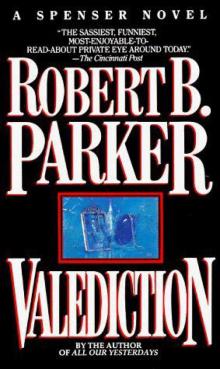 Valediction
Valediction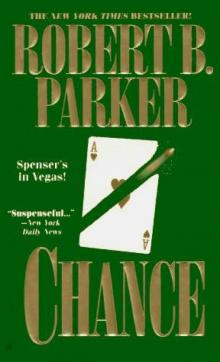 Chance s-23
Chance s-23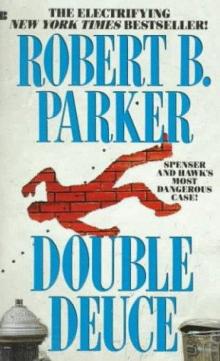 Double Deuce
Double Deuce Wilderness
Wilderness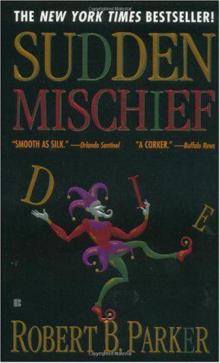 Sudden Mischief
Sudden Mischief Night Passage js-1
Night Passage js-1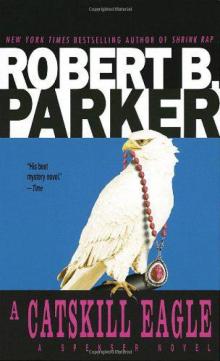 A Catskill Eagle
A Catskill Eagle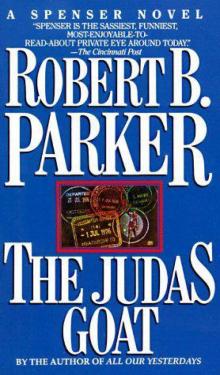 The Judas Goat
The Judas Goat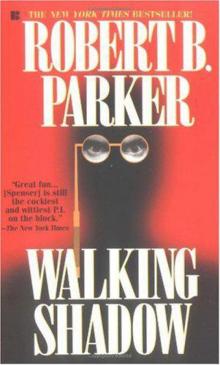 Walking Shadow
Walking Shadow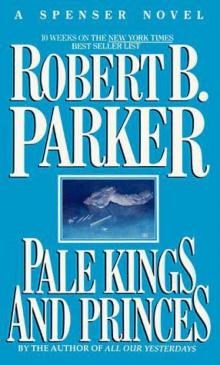 Pale Kings and Princes s-14
Pale Kings and Princes s-14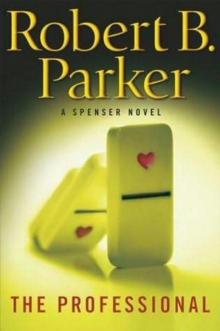 The Professional
The Professional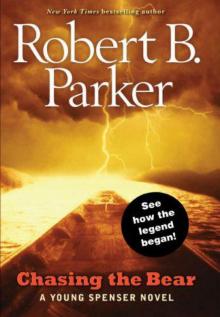 Chasing the Bear s-37
Chasing the Bear s-37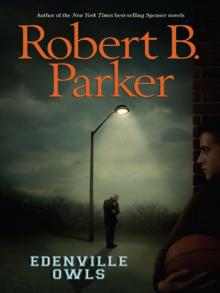 Edenville Owls
Edenville Owls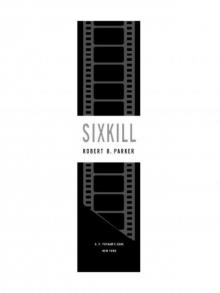 Sixkill
Sixkill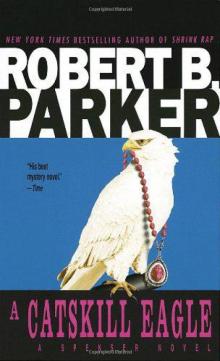 A Catskill Eagle s-12
A Catskill Eagle s-12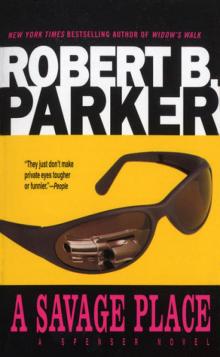 A Savage Place
A Savage Place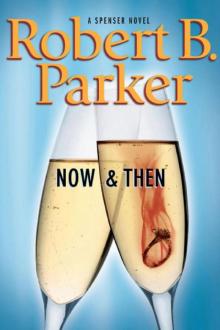 Now and Then s-35
Now and Then s-35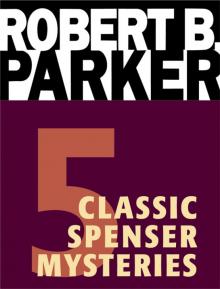 Five Classic Spenser Mysteries
Five Classic Spenser Mysteries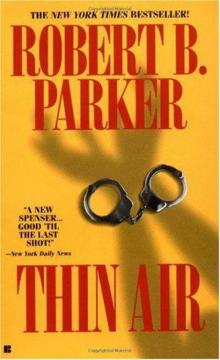 Thin Air s-22
Thin Air s-22